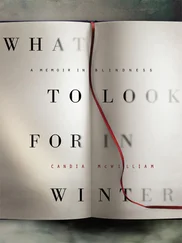Edeet Ravel - Look for Me
Здесь есть возможность читать онлайн «Edeet Ravel - Look for Me» весь текст электронной книги совершенно бесплатно (целиком полную версию без сокращений). В некоторых случаях можно слушать аудио, скачать через торрент в формате fb2 и присутствует краткое содержание. Жанр: Старинная литература, на английском языке. Описание произведения, (предисловие) а так же отзывы посетителей доступны на портале библиотеки ЛибКат.
- Название:Look for Me
- Автор:
- Жанр:
- Год:неизвестен
- ISBN:нет данных
- Рейтинг книги:5 / 5. Голосов: 1
-
Избранное:Добавить в избранное
- Отзывы:
-
Ваша оценка:
- 100
- 1
- 2
- 3
- 4
- 5
Look for Me: краткое содержание, описание и аннотация
Предлагаем к чтению аннотацию, описание, краткое содержание или предисловие (зависит от того, что написал сам автор книги «Look for Me»). Если вы не нашли необходимую информацию о книге — напишите в комментариях, мы постараемся отыскать её.
Look for Me — читать онлайн бесплатно полную книгу (весь текст) целиком
Ниже представлен текст книги, разбитый по страницам. Система сохранения места последней прочитанной страницы, позволяет с удобством читать онлайн бесплатно книгу «Look for Me», без необходимости каждый раз заново искать на чём Вы остановились. Поставьте закладку, и сможете в любой момент перейти на страницу, на которой закончили чтение.
Интервал:
Закладка:
“Oh, yes. I remember. But how do you know me?”
“I’m clairvoyant.”
It was a stupid question: we al knew one another, we were the same people who showed up at these things, again and again. Apart from that, I was famous. Once a year, on the anniversary of Daniel’s disappearance, I placed a ful -page advertisement in the newspaper, which read, I wil never ever ever ever ever stop waiting for you, with the word ever multiplied so that it l ed the entire page, and I was known for this annual plea. It cost me an entire romance novel, but I didn’t care. I had also been interviewed several times on radio and television, and I gave those interviews in the hope that Daniel would hear or see them and believe me and come back. I had recently placed my eleventh ad.
I tried to remember what I’d writ en Ra when he was in jail. Your courage … gratitude … refusing to ght … example to others—the usual clichés.
“A girl had a seizure, they were rushing her to a transit—do you know what happened to her?” I asked him.
“She’s okay, she’s in the ambulance. I’l go check on her.” He disappeared into the crowd. People were buying fruit at a kiosk; it helped them feel in control again. Then we al sat down on the sidewalk, looked at one another, and said nothing.
Daniel and I stayed indoors for three days. We were afraid to break the spel , afraid that the world outside might somehow rouse us from the sweet dream we’d fal en into, and threaten us with omens or actual misfortune. Granny was happy to have me there and tried to give me some of her jewelry. She was thin and very bent; her back had been broken in the camps. And yet she didn’t seem to be in any discomfort.
Daniel told me that she had lost the ability to experience pain, which was actual y quite dangerous, because she didn’t know when she burned herself or when anything was wrong with her. It was a rare but known phenomenon, he said, the inability to feel pain, and it had a medical name, though very lit le was understood about it.
I couldn’t communicate with Daniel’s grandmother because in recent years she’d forgot en al her languages apart from Russian. Daniel, who had taken a few courses in Russian so he’d be able to talk to her, did his best to translate. He had also found a young Russian woman, Elena, who was wil ing to come over every evening and read to his grandmother. Elena was formal and prim, like a governess in a Victorian novel; according to Granny she was wel educated and had a wonderful reading voice. They were now halfway through The Possessed, which Daniel was reading as wel , out of curiosity.
I phoned the base to say I was sick, but I didn’t have a doctor’s note, I had not fol owed correct procedure, and I was afraid to go back.
Things were not working out for me in the army. My life after my father left had been easy; I was coddled and indulged. Flash oods of distress came over me only at night, as I lay stretched out on the temporary sofa beds of various surrogate parents, feeling slightly sick from too many homemade french fries dipped in hummus—my favorite food, and therefore always included in either the afternoon or late-evening meal. My mother would have been appal ed by this diet, and I was slowly expanding out of al my clothes; they were ripping at the seams and I held them together with safety pins.
The army jolted me out of this epicurean reverie. No more french fries, for one thing, and the mashed potatoes in the mess hal were watery. Al the same, I was hopeful at rst. This would be a good chance to get back into shape. I was also excited by the prospect of living in close quarters with the other conscripts. When I was lit le, an only child in a seven-room at that o ered a view of the vast, theophanic desert from every window, I slept with a copy of the children’s book Madeline under my pil ow. I’d imagine the two rows of beds in which the lucky girls at Miss Pavel’s convent school were safely tucked, and I’d transport myself to Paris, to Madeline’s dormitory. I often fel asleep clinging to this fantasy. I would not be Madeline herself; she was too extroverted for me. But I would be her best friend, and I would tel her my secrets. In school I had many friends, but no one became my true bosom friend, as they were cal ed in the novels I read. No one knew more about me than I was wil ing to disclose.
Now Madeline was coming to life, more or less: girls in rows of bunk beds above me and on both sides, put ing away combs and makeup in the lit le compartments assigned to us, chat ering, laughing hysterical y at nothing. One girl laughed so hard she began to snort and the snorts made us laugh even harder. Then a male o cer came into the barracks to say a few words. We couldn’t stop giggling, and he was embarrassed and confused and suddenly self-conscious, though he tried not to show it, and he would probably have succeeded if you weren’t looking hard, but I was. He told us to set le down, we weren’t in nursery school. When he left we al began to sing spontaneously. One of our sappy nationalist songs; I suppose we did it in order to calm down. Our homeland, O our homeland. Everyone in my barracks was nice.
Maybe I was lucky, or maybe we had to be nice to each other because otherwise the whole experience would have been unbearable.
But the pleasures of get ing proper exercise and living with girls my age were eclipsed by the di culties that beset me almost immediately. I didn’t like get ing up early, and I didn’t like obeying orders, especial y orders that felt like bul ying, though I was told that my at itude was the problem, and I agreed: my at itude was indeed the problem. I lacked enthusiasm, I lacked patriotism, I was sel sh and failed to see the larger picture, which was that you couldn’t have a good army if everyone slept in and the sergeant was a pleasant person— and if we didn’t have a good army, where would we be? One time my sergeant told me it was a good thing my mother had died so she wouldn’t have to see what a loser her daughter was, and I cried. My friends tried to console me, and one of them, Sheera, gave me a gold locket and told me to keep a photograph of my mother inside and wear it around my neck. I tried to reform, partly because I wanted to and partly to avoid cleaning more toilets, but I didn’t succeed. My heart wasn’t in it. Somewhere, it seemed, my parents had failed to instil in me the right

avoid cleaning more toilets, but I didn’t succeed. My heart wasn’t in it. Somewhere, it seemed, my parents had failed to instil in me the right values. Or so it was suggested. I was very hurt by the accusation, especial y since my mother wasn’t around to defend herself, but they were right, of course. My parents were skeptics.
So Daniel and I left his grandmother’s at, nal y, in order to set a date for our wedding. Armed with proof of an impending marriage, I returned to the base to clean some more toilets and col ect my things. “You’re lucky,” the o cer who released me said. “You’re lucky you found someone to take you of our hands. And maybe we’re lucky too … Wel , congratulations.”
I handed in my uniform and left the base. I was free again.
I sat with my back against a storefront, next to two young Palestinian men. One of them spoke to me. “I can’t go anywhere,” he said. “I can’t move, I can’t work.” He was stil hopeful, he thought things might improve, but his friend had given up entirely. His friend stared into space, his eyes set; he didn’t believe anything would ever change. I asked for permission to photograph them. They were an interesting pair: one of them energetic, ready to try new things, the other convinced that they were al doomed forever and amazed at the naïveté of anyone with faith in the future. I knelt on the sidewalk to get a good angle and took several photographs of the two friends. The angry man’s face was closed and stil , but his friend smiled for the camera. I had rarely met a Palestinian who was uncomfortable in front of a camera. Palestinian men and children liked being photographed no mat er where they were; the men stared straight into the lens, and the children lined up in front of me with smiles as soon as they saw my camera. Women preferred to be photographed indoors, though some women were shy even then, and would urge me to take pictures of their children instead.
Читать дальшеИнтервал:
Закладка:
Похожие книги на «Look for Me»
Представляем Вашему вниманию похожие книги на «Look for Me» списком для выбора. Мы отобрали схожую по названию и смыслу литературу в надежде предоставить читателям больше вариантов отыскать новые, интересные, ещё непрочитанные произведения.
Обсуждение, отзывы о книге «Look for Me» и просто собственные мнения читателей. Оставьте ваши комментарии, напишите, что Вы думаете о произведении, его смысле или главных героях. Укажите что конкретно понравилось, а что нет, и почему Вы так считаете.












